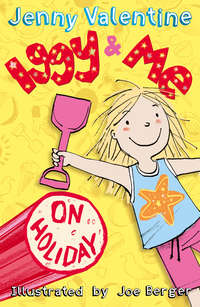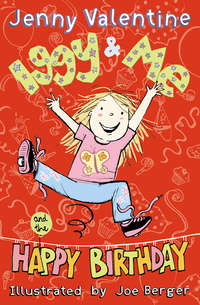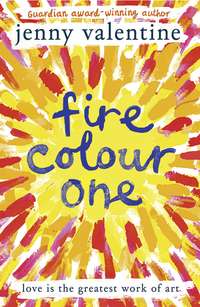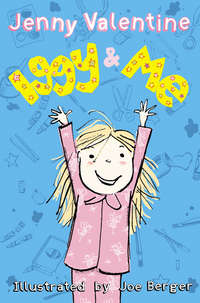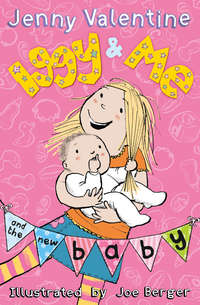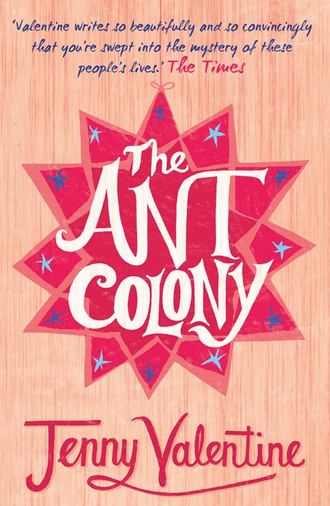
Полная версия
The Ant Colony

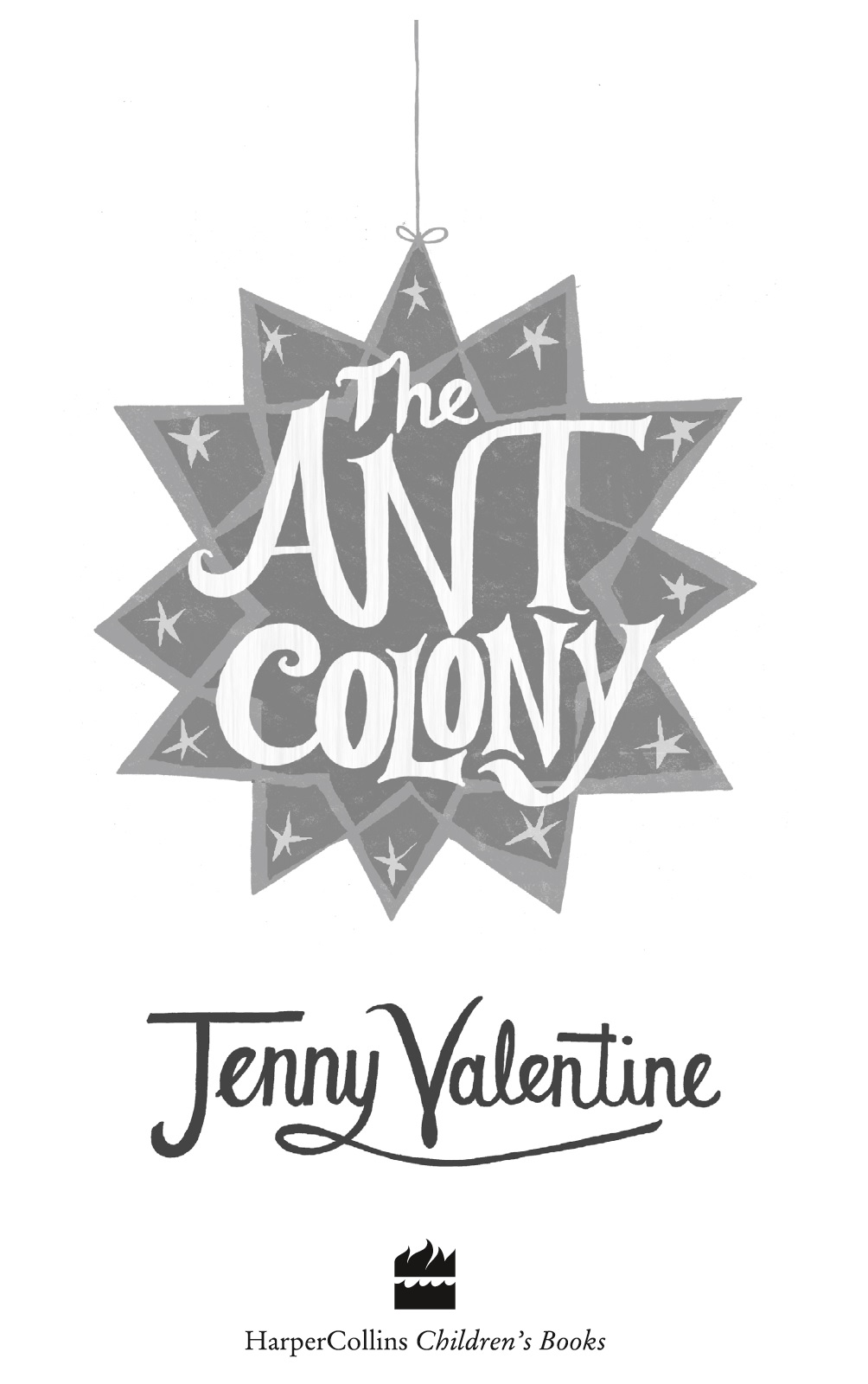
Copyright
HarperCollins Children’s Books A division of HarperCollinsPublishers Ltd 1 London Bridge Street London SE1 9GF
www.harpercollins.co.uk
Copyright © Jenny Valentine 2009
First published in Great Britain by HarperCollins Children’s Books in 2009
Jenny Valentine asserts the moral right to be identified as the author of this work.
All rights reserved under International and Pan-American Copyright Conventions. By payment of the required fees, you have been granted the non-exclusive, non-transferable right to access and read the text of this e-book on-screen. No part of this text may be reproduced, transmitted, downloaded, decompiled, reverse engineered, or stored in or introduced into any information storage and retrieval system, in any form or by any means, whether electronic or mechanical, now known or hereinafter invented, without the express written permission of HarperCollins e-books.
HarperCollinsPublishers has made every reasonable effort to ensure that any picture content and written content in this ebook has been included or removed in accordance with the contractual and technological constraints in operation at the time of publication.
Source ISBN: 9780007283590
Ebook Edition © MAY 2012 ISBN: 9780007381012
Version: 2015-04-01
For Alex
(and Reg)
Contents
Cover Page
Title Page
Copyright
Dedication
One (Sam)
Two (Bohemia)
Three (Sam)
Four (Bohemia)
Five (Sam)
The Story of My Life Part One by B Hoban
Six (Sam)
Seven (Bohemia)
The Story of My Life Part Two by B Hoban
Eight (Sam)
Nine (Bohemia)
The Story of My Life Part Three by B Hoban
Ten (Sam)
The Story of My Life Part Four by B Hoban
Eleven (Bohemia)
Twelve (Sam)
Thirteen (Bohemia)
Fourteen (Sam)
Fifteen (Bohemia)
Sixteen (Sam)
Seventeen (Bohemia)
Eighteen (Sam)
Nineteen (Bohemia)
Twenty (Sam)
Twenty-one (Bohemia)
Twenty-two (Sam)
Twenty-three (Sam)
The Story of My Life Part Five by B Hoban
Twenty-four (Bohemia)
Keep Reading
Acknowledgments
About the Author
Also by Jenny Valentine
About the Publisher
One (Sam)
I saw a girl. Just a kid. It’s not what happened first, but it’s a good place to start. I can see her now. She could be standing right in front of me. I wish she was. Dark red hair, cream white skin, eyes to the ground.
I was walking past and she was there in a doorway, an open doorway on to the street. Behind her was another door into the place, a bar I think, or a club maybe. And around her, between the two doorways, was just black, pure matt black. Her clothes were black, so her dark red hair and her pale face and hands were the only places of light.
She looked like she was appearing out of the night, sitting for a painter who’d been dead two hundred years. I’m not joking. There she was, in the rougher end of Camden High Street, looking like she belonged on the wall of the National Gallery.
I kept walking and I held her picture in my head, and I remember thinking, What if I went back and said hello? What if I told her how she looked, and how much I wished I had a camera and some idea of how to use it? I’d scare her, a big bloke like me. She’d think I was a freak. She’d move away and leave her place of perfect darkness and ruin the picture forever.
So I didn’t. I marked her down as one out of the eight hundred mental snapshots I’d taken that minute. It’s what you do in a place so crammed full of things to look at. Blink and keep moving. I’d been here less than one day, and even I’d been in London long enough to know that.
My name is Sam and I’m not from here.
I grew up in a house beneath a mountain, hidden in a dip that filled with snow in the winter, with water in the spring. Night time there was proper darkness, a total absence of light, apart from the stars which were infinite and spread just right to show you the curved shape of the sky.
There aren’t any stars in the city. I used to drag my mattress over to the window and lie on my back looking out at the damp blanket of orange that bounced off every available surface, at the flashing wings of aeroplanes.
The day I left home was like this: high sky, still air, shouting birds. I woke up and it was beautiful, and I hated the sight of it because there was no way I could stay. I forced myself to lie in bed until Dad had gone, staring at the sun through my window for so long that I could see it with my eyes shut.
I was sitting at my desk, dressed and ready to go when Mum banged on my door around eight. Three short raps. She made the distance beween us obvious even in the way she did that.
Afterwards I often wondered how things would have been different if she’d known I was leaving, if she’d have kept those feelings to herself just that once. But you can’t go around treating everyone like you might never see them again, just in case. And anyway, it was way too late by then. I already knew how she felt.
Missing the bus was way easier than catching it. I changed my school sweatshirt in the broken down barn at the end of our lane and stashed it in my bag. And then I hitched into town to catch the train. Aaron Hughes the old farmer picked me up – truck like the inside of a haystack, trousers held up with bailer twine, vicious Jack Russell on the passenger seat; that kind of old. He drove at about ten miles an hour, which is not exactly getaway speed. But he didn’t hear too well and he wasn’t bothered about talking, and I was glad about that. I wondered what he would do if he knew he was helping me escape.
The sky was this intense blue, palest at the bottom, dark around the edges. The surface of the hills shifted with the light, darkened with the shadows of high clouds. I was sick to death of all of it: the same curves, the same trees, the same beauty. But because I knew it was the last time, I stared like I’d never seen it before.
Aaron laughed. He said something about the land being like a woman, stunning when you leave her and grey and ordinary when you don’t.
We were quiet then. I didn’t know what to say to that.
The station was about a twenty minute walk from where he dropped me. People were waiting on the platform, saying goodbye to each other, huddling around cars. I didn’t see anyone I knew, thank God. I bought a ticket, crossed the iron bridge over the railway and sat there in the tunnelling wind on my own.
This is what I remember of the train journey. Identical twins. Women with shining scruffy black hair sleeping against each other two tables away. They were thin and tired, and they kept opening their eyes and not speaking, and then closing them again. Each of them was beautiful because there were two of her, like someone put a mirror down the middle of the train.
A group of kids behind me on their way to a maths marathon. They spoke so everyone could hear, like they were important, like nothing could touch them, like being good at maths was all you’d ever need to make sense of the world. I wanted to set them straight, but I knew they’d find out soon enough without me.
A little boy at the window of another train, crammed in, surrounded by arms, the sleeve of a quilted jacket squashed flat against the glass like someone pulling a face.
I took the sim card out of my phone, dropped it in a half empty paper teacup and gave it a stir. The woman opposite me stared without blinking while I did it and then went back to her magazine. I made sure I still had my money on me. I’d been taking some out of the bank every day. I kept checking it was there, all the time, because it was all I had.
The mountains shrank and the land flattened out, got boxed in and carved up. The view from the window was cramped and ordinary and fascinatingly strange. The twins woke up and looked out at it without saying a word.
I closed my eyes.
The first thing I learned about London was not to smile. I got off the train and looked around. The platform emptied like an organised stampede. I smiled at this man in a suit, darkskinned, middle-aged, clean-shaven. He was walking towards me. The shine on his shoes reflected the sky through the glass roof of the station. I smiled and it didn’t go down so well. He did three things, lightning quick, in less than a second. I watched him. He changed the rhythm of his walk ever so slightly. He looked hard at me, like steel, to make sure he wasn’t seeing things. Then he let his eyes cloud over, so he was still looking, but right through me, never at me. The one thing he definitely didn’t do was smile back. I learned pretty quick that the only people who smile at everyone in London are newcomers and the clinically insane.
Later, in the ticket hall at Paddington, I saw more people in one go than I’d seen in the whole of my life before. Thousands lining up for tickets and funnelling through turnstiles, going up escalators and coming down. I stood dead still at the eye of the storm, just one of me, and stared. I kept looking at this list I’d scribbled on the back of an envelope, like it might help. I couldn’t read my own writing.
Everyone else knew where to go and moved in swift, strong lines that picked me up and took me in the wrong direction, like the river at home after a night of rain.
I thought about Max then. He came back to me in the middle of all that sound and rhythm and colour and fumesmell and movement. He surprised me. I thought about walking behind him in the dappled darkness of the woods. I pictured his permanent frown, his sticking out ears, his chaotic hair. I thought about the nervous flicker of his smile.
It was all I could do to keep breathing.
You know when people say they wish the floor would open up and swallow them whole? Well, it’s pretty easily done, if you really mean it. I came out of Camden Town Station at twenty-nine minutes past four and vanished without a trace. Nobody knew who I was. I couldn’t stop smiling.
The sky was lower than I was used to. I went into a baker’s and bought a sandwich, and I couldn’t understand half of what the girl behind the counter said to me because she said it all so fast. I took too long counting out the right money and I could hear her foot tapping and she didn’t smile back, in fact she didn’t even look at me. The sandwich tasted of nothing and made me incredibly thirsty. I bought a Coke from a paper shop that you couldn’t fit more than two bodies in at one time. It was so crammed full of things to buy they forgot to leave room for people.
That’s what Camden looked like to me – it was the first thing I noticed. There was stuff for sale everywhere and I wondered who the hell would want to buy any of it.
I sat down on the wall of a bridge over the canal and finished my drink. I opened my bag and looked inside, for no reason at all. It was so loud. Layers of noise crowded and collided in my head, like sheep in a lorry, and made it hard to think. I walked all the way down one side of the street, into the yards, stopping for everything, studying everything, and then all the way back down the other. It was dirty, all greys instead of greens, like everything had a coat of dust on it. I felt like I needed to wash my hands even though I’d hardly touched anything.
I read about the dust on the London Underground once, that there’s tonnes of it every week and it’s mostly human skin. I hadn’t really believed it. But now I wondered if that was what was covering everything – pieces of all the people I’d already seen and all the people I hadn’t.
That’s when I saw the kid in the doorway, when I was walking up and down thinking about the dust. That’s when I filed her away in my memory box of people you don’t ever speak to. I was killing time because I had no idea what should happen next. It’s probably why I noticed her.
I went into a pub and had a pint. The man behind the bar didn’t look at me, didn’t ask how old I was. Nobody looked at me. It was like magic, like finding an invisible cloak.
It was the opposite of home.
It’s what I’d longed for, for weeks and weeks, to be the blind spot in a room, the black hole in the universe, to be absent without trying to at all.
I wanted to stay like that forever.
Later, I stood on the pavement outside the pub and tried to make sense of where I was. I remember pretending the road was a river, fed by other smaller roads like the streams that run off the hills, but thick with cars and bikes and buses instead of water. I remember thinking I’d had too much to drink.
Across the street a black plastic sign with pink writing said The Kyprianos Hotel. There was a fracture in the plastic and a round hole, like someone had thrown a tennis ball in there, or a rock. I had my hand around all the money in my pocket. I could afford it, I knew that, maybe not for long, but I suddenly needed to sleep.
I’d never stayed in a hotel before. It didn’t amount to much, apart from some soap in a box and a plastic shower cap, and a bathroom where you had to practically stand on the loo seat if you wanted to close the door. I didn’t close the door because there was nobody watching. I was completely and utterly on my own.
I almost regretted it then. I very nearly decided I’d done the wrong thing. But I swerved away from it at the last minute and kept my eyes on the road.
If only I’d learned to do that earlier.
I couldn’t sleep because there was too much going on outside the window – a whole orchestra of sirens and yelling and footsteps and door slams and engines. I wondered how anyone ever slept. I stared at a clamshell stain in one corner of the ceiling and thought about becoming someone new with nothing to be ashamed of, no past, just a future.
I thought about how weird it was, to be missing in one place while you’re right there in another.
Two (Bohemia)
I was waiting for my mum. That’s what I was doing.
I was pressing patterns into a piece of old chewing gum with the bottom of my shoe. There were more than nineteen pieces of gum on the square of pavement outside the bar. I was counting them.
I wasn’t allowed in cos I’m underage. That’s why I was waiting outside in the black doorway in the freezing cold. She was in there for ages. Mr Thing and her weren’t friends any more, which meant she’d also lost her job and we had to leave the flat. Things happen that way a lot because Mum’s good at putting all of her eggs in one boyfriend.
We went so she could collect her wages and they had one more massive row while I stood outside counting spat out gum, trying not to listen. When she stormed out her mascara had slipped and the end of her nose was red, and she was halfway through a sentence about what a something he was.
When she saw me she rubbed her nose with the back of her hand and cracked a smile. She’s got nice teeth, my mum, all straight and small. Not like my mouth, which is still full of holes and frilly edges, even though I’m ten already. I hope I get teeth like her when I’m finished. I hope I hurry up.
“Let’s go,” Mum’s pretty teeth said. “Let’s spend some of his money, quick.”
She got me by the hand and we walked really fast across the road, and I thought she was saying stuff to me that I couldn’t hear.
“What?” I said, and she turned to me and I saw she had her mobile out already.
We packed before we went to see Mr Thing cos Mum’d been expecting it and she’d helped herself to a few extras out of his house, like towels and wine and stuff. We’d stashed our bags in a pub.
She phoned around and found a place, quick as a flash. She’s clever like that.
“Small apparently,” she said, and then licked her lips. “Like we could afford anything else”.
We lugged everything from the pub and stood outside the house with our suitcases. I looked at Mum, her big black glasses reflecting the sun, a little smudge of lipstick on her teeth when she smiled. I didn’t have time to point it out cos she rang a couple of bells and this lizard man in a pair of faded jeans appeared in the basement.
He stood there talking to her. I swear he was trying to see up her skirt. I tried to tell her, to pull her a bit out of the way, but she just said, “Not now!” sort of through her grin, so I glared at him instead. He was the landlord and I didn’t like him at first, smarmy old scale-face called Steve.
The corridor smelled funny, of cabbage and pot noodle and then something else like bleach with flowers in it. There was a big stack of old letters so the door couldn’t open all the way. Steve kicked it to one side with his cowboy boot and it fanned out over the floor. The carpet was the colour of a camel and looked like a camel had been eating it. He said it needed to be “refurbished” and when he said the word, he flowered his arms around like we might see it change before our very eyes, but we didn’t. There was a bike against the wall, with no front tyre and no saddle. It made me think of dinosaur bones in the desert. It was locked to the radiator with a big big chain.
“That’s Mick’s,” he said. “He lives below you. The rest of it is in his kitchen.”
We were on our way upstairs when an old lady came through the front door. It was only me that turned round to see. Her little dog started sniffing around all the envelopes and lifted its leg for a pee. It made me laugh, the sound of it landing. I didn’t tell. The old lady winked at me and tickled the dog and jingled her keys and went into her flat.
Our house was at the top. Steve carried one of Mum’s bags and she took one of mine. I dragged the other one up with two hands cos it was easier than lifting and it made this sound, scratch-thump, scratch-thump, on every step.
There was a loo, straight ahead, like as soon as you walked in, actually a bathroom, a kitchen to the left and a room with a sofa bed in it. I like sofa beds cos they’re a secret and you can have a bedroom any time you want, night or day. This one was a weird peachy colour that wasn’t so nice, but I didn’t mind cos it was bigger than our old one and it didn’t have such sharp corners.
“What do you think, Mum?” I said. “It’s all right, isn’t it?”
She frowned at me for calling her Mum in public and then she said to Steve, “We’ll take it.”
They shook hands and she did that laugh she does for boys only, which sounds like tiny stones landing on the high bit of a piano.
After she handed over the money and Steve handed over the key and left, she did a bit of ranting. That’s what I call it when she’s angry and she talks like she’s forgotten I’m there or I could be anyone, or something.
She said that maybe this was what Steve meant by “furnished” – one crap sofa, rubbish in the bins, not even a table, a couple of plates – but she could think of another name for it. She couldn’t believe how low she’d sunk. She said the place was filthy. She said, how did we know he wasn’t just re-letting to us while the people who really lived there were out at work?
“Huh!” she said, like a cross sort of laughing. “Imagine them coming home to you and me.”
While she ranted I did our Mary Poppins trick. I call it that cos there’s a bit I really like in the film where Mary has a bag made out of carpet and it’s full of stuff you’d never fit in a bag in real life, lamps and flowerpots and everything. My bag is a bit like that. Unpacking it never seems to end and there’s all sorts of stuff you can fling about until it feels more like home. Me and Mum’s favourite thing in that bag was a fold-up cardboard star with holes cut out. It was white when we got it and I painted it ages ago, when I was like six, and even though I didn’t do such a great job of it I never let her throw it away. It goes over the light bulb in your ceiling and makes everything look like a disco at Christmas. Except there wasn’t a light bulb, just an empty socket hanging, so I said I’d go to the shop and get one.
Mum was in the bathroom by then. I know what she does in there.
The street was way nicer than where Mr Thing lived, which was just flats and more flats and dark places I didn’t like being in by myself. For a start it was quiet, except for the cars whizzing across at the end. There was a garden on the other side of the road and a pub halfway down. The pub was covered in green tiles, like a bathroom. The houses were all the same and sort of elegant. I walked slowly, looking into all the windows. You can learn a lot about a place that way, about who lives there and the kind of stuff they keep. Like in some places there’s always books, more than you need really, and some houses look like they’re actually in a magazine, with the right flowers and everything. And some have net curtains older than me and Mum put together, and you can’t see in at all, but you can see they need washing and that nobody who lives in them ever goes out.
In our new street it was harder to see cos the bottom windows were under the pavement and the next windows up were too high. The basements mostly had leaves and bicycles and dustbins and broken chairs in, apart from one that had little trees cut to look like squirrels, but you couldn’t swing a cat down there.
Each house was cut up into so many flats you wondered where they put them. I read the little lit-up cards by the door on my way back in to ours and tried to work them out.
Basement was S Robbins, which was lizard-face Steve.
Flat one said Davy, the old lady with the peeing dog.
Flat two was water damaged, all brown and cloudy so I couldn’t read it.
Flat three said Flat three, which seemed pointless and was where the rest of the bike was.
Four was ours now, but it still said Fatnani.
The first thing I did, before the light bulb even, was cut a little piece of paper the right size off an envelope. I wrote CHERRY & BOHEMIA, drew some stars and fireworks, to put downstairs at the button for number four.
Cherry’s my mum’s name. I’m supposed to call it her now I’m ten cos the word MUM makes her feel old. Cherry loves it the times someone asks if we’re sisters. She knows they don’t mean it and they know she doesn’t believe them, but everyone plays along anyway. That’s what she told me. She said, “The men I hang out with are suckers.”
The time I like her best is some Sunday afternoons. We stay in our pyjamas, watch TV if we’ve got one, and eat what we want under a duvet. Some Sundays, she looks at me like she hasn’t seen me all week.
Steve the landlord lent us a broom and some bin bags and we cleaned up. Mum sprayed some perfume about so the whole flat smelled of her. When he came to get his stuff back, he asked Mum if she wanted to come out for a drink, just down the road at the pub that looked like a bathroom.
“You can come if you want, little lady,” he said to me. “Have a lemonade and a packet of crisps.”
Mum said I was all right here. She said, “You don’t mind do you, Bo, if I pop out?”


